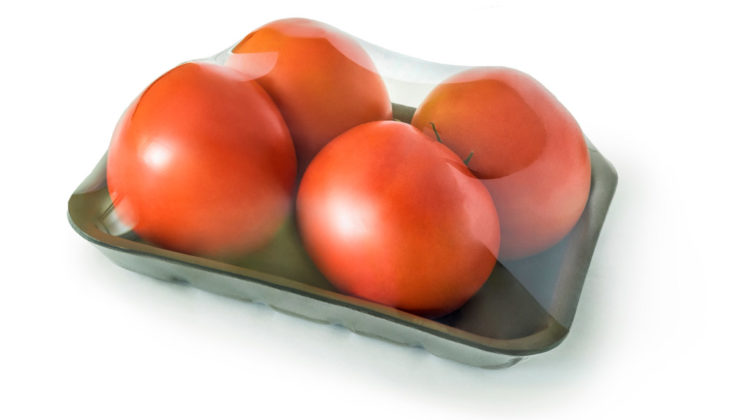
Scientists at Rutgers University in New Jersey and Harvard University in Massachusetts have developed an environmentally friendly alternative to plastic food wrap – a biodegradable, plant-based coating that can be sprayed onto foods, protecting them against pathogenic and spoilage microorganisms, and transportation damage.
‘We knew we needed to get rid of the petroleum-based food packaging that is out there and replace it with something more sustainable, biodegradable and nontoxic,’ said Philip Demokritou, director of the Nanoscience and Advanced Materials Research Center and the Henry Rutgers chair in nanoscience and environmental bioengineering at the Rutgers School of Public Health and Environmental and Occupational Health Sciences Institute. ‘And we asked ourselves at the same time, “Can we design food packaging with a functionality to extend shelf life and reduce food waste while enhancing food safety?”
‘What we have come up with is a scalable technology that enables us to turn biopolymers, which can be derived as part of a circular economy from food waste, into smart fibres that can wrap food directly,’ he continued. ‘This is part of new generation, “smart” and “green” food packaging.’
The new packaging material is produced using a process called focused rotary jet spinning, in which stringy polysaccharide/biopolymer-based fibres are spun from a heating device that resembles a hair dryer and used to ‘shrink-wrap’ foods of various shapes and sizes, from avocados to sirloin steak.The resulting material is sturdy enough to prevent bruising.
The fibres are laced with naturally occurring antimicrobial ingredients – thyme oil, citric acid and nisin – that fight spoilage and pathogenic microorganisms such as E. coli and listeria.The researchers have demonstrated that the coating, which can be rinsed off with water and degrades in soil within three days, extends the shelf life of avocados by 50 per cent.
The research has been published in Nature Food.


